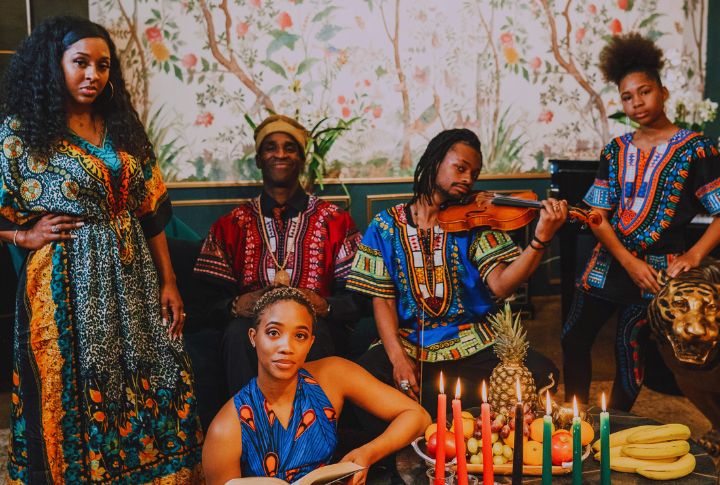
Kwanzaa shows us how coming together can make life better for everyone. Its ideas are all about teamwork, caring for others, and staying strong as a group—even when things feel divided. These lessons aren’t just for holidays—they’re powerful guides for everyday life. Curious how simple values can create lasting change? You’ll want to read on.
Prioritize Family Unity As The Bedrock Of Resilience
Umoja, which means unity, teaches us that strong families are the foundation for everything else. When a family sticks together and supports each other, they can handle almost any setback life throws their way. A tight-knit family unit creates the solid base we all need to feel strong and ready for the world.
Build Community Solidarity To Counter Fragmentation
This principle extends unity beyond your front door and into your neighborhood. It’s about consciously building real, active connections with the people around you, not just living next to them. Being in genuine solidarity means you share ideals and jump in to help if anyone in the group needs it.
Foster National Cohesion For Broader Harmony
The Swahili language used in Kwanzaa connects people across different places and backgrounds. As people believe they are working toward the same goals, it’s easier to overcome arguments and divisions in society. True national cohesion is simply a collective understanding that we’re all in it together, making harmony possible.
Embrace Racial Unity To Combat Discrimination
Dr. Maulana Karenga founded Kwanzaa to help African Americans feel a strong sense of pride and togetherness. The holiday’s values, drawn from traditions all over Africa, put a huge emphasis on standing together as a group to honor their shared culture and past. That unified front creates power and is a direct, strong way to fight against any kind of unfair treatment or discrimination.
Assert Self-Determination To Unify Narratives

Kujichagulia, the principle of self-determination, is about taking control of your own story and identity. The community must actively define itself and decide its own path forward, rather than letting others do it for them. People gather to reflect on how they can speak for themselves and craft a narrative that truly reflects who they are.
Speak Collectively To Amplify Voices
Sharing thoughts and experiences during the Kwanzaa celebration proves the immense power of group discussion. These shared dialogues are key to unifying people’s stories and making their advocacy for common interests far stronger. The time taken to speak as a whole helps everyone reach agreements and truly understand one another.
Share Problems As A Community For Joint Solutions
Ujima means collective work and responsibility, and it teaches that no one should have to face a problem alone. In the spirit of ancient African traditions, every challenge an individual faces is seen as an issue for the whole group to help solve. People often participate in group projects or service to put the idea into action.
Embrace Collective Responsibility To Include Everyone
This principle ensures that every single person has a valued role and feels like they belong. The commitment to collective responsibility means building a network where absolutely no one is forgotten or left out. Knowing that your contribution matters to the whole group is the essence of true inclusion.
Develop Cooperative Economics For Shared Prosperity
It means consciously supporting businesses owned by people within the community to help them grow and succeed. The principle is about collective prosperity, following African models of shared wealth instead of just individual gain. If you support Black-owned businesses, you help nurture both progress and community pride.
Profit Collectively To Reduce Inequalities
The philosophy draws inspiration from traditional African systems that believed in mutual support and shared resources. Community fairs and pop-up markets during the holiday actively promote local entrepreneurs. That focus on collective profit helps uplift the entire neighborhood, making economic fairness a group achievement.

